
Pena_Palace_Sintra_Portugal Lisbon Private Tours
1529. Pena National Palace David Sim on Flickr (Creative Commons) Perched high atop a lush hill in São Pedro de Penaferrim, Portugal, the Pena National Palace is a popular national landmark that.

Pena Palace Portugal Blog about interesting places
The Pena Palace (Portuguese: Palácio da Pena) is a Romanticist castle in São Pedro de Penaferrim, in the municipality of Sintra, on the Portuguese Riviera.The castle stands on the top of a hill in the Sintra Mountains above the town of Sintra, and on a clear day it can be easily seen from Lisbon and much of its metropolitan area.It is a national monument and constitutes one of the major.

5 curiosidades sobre o Palácio Nacional da Pena Lisboa Secreta
E, lá no alto, a joia de Sintra. O Palácio Nacional da Pena é como uma joia sagrada que coroa a Serra de Sintra. O parque envolvente, em sintonia com o caráter feérico do palácio, desperta emoções de mistério e de descoberta. Nos seus recantos, os olhares perdem-se de encanto. Os tons coloridos do palácio, expoente máximo do.

Palácio da Pena, Portugal Photography by Luis Faria Beautiful spots, Portugal, Pictures
El Palacio da Pena is the most famous of all the castles in Sintra, and the one you'll see on all the Portugal guidebook photos. The brightly coloured red and yellow towers are visible from all around Sintra, as this castle is high on the hillside and the gardens include the highest point in Sintra. The castle is a dream for Instagram fans.

Get swept away by Portugal's Pena Palace with fairytale charm, stunning scenery, and top grub
Pena National Palace The fantastic Palácio da Pena is one of the best examples of 19th-century Romantic revivalism in Portugal.Situated at the top of the Monte da Pena, the palace was built on the site of an old monastery belonging to the Order of St. Jerome. It was the fruit of the imagination of Dom Fernando of Saxe Coburg-Gotha, who married the queen Dona Maria II in 1836.
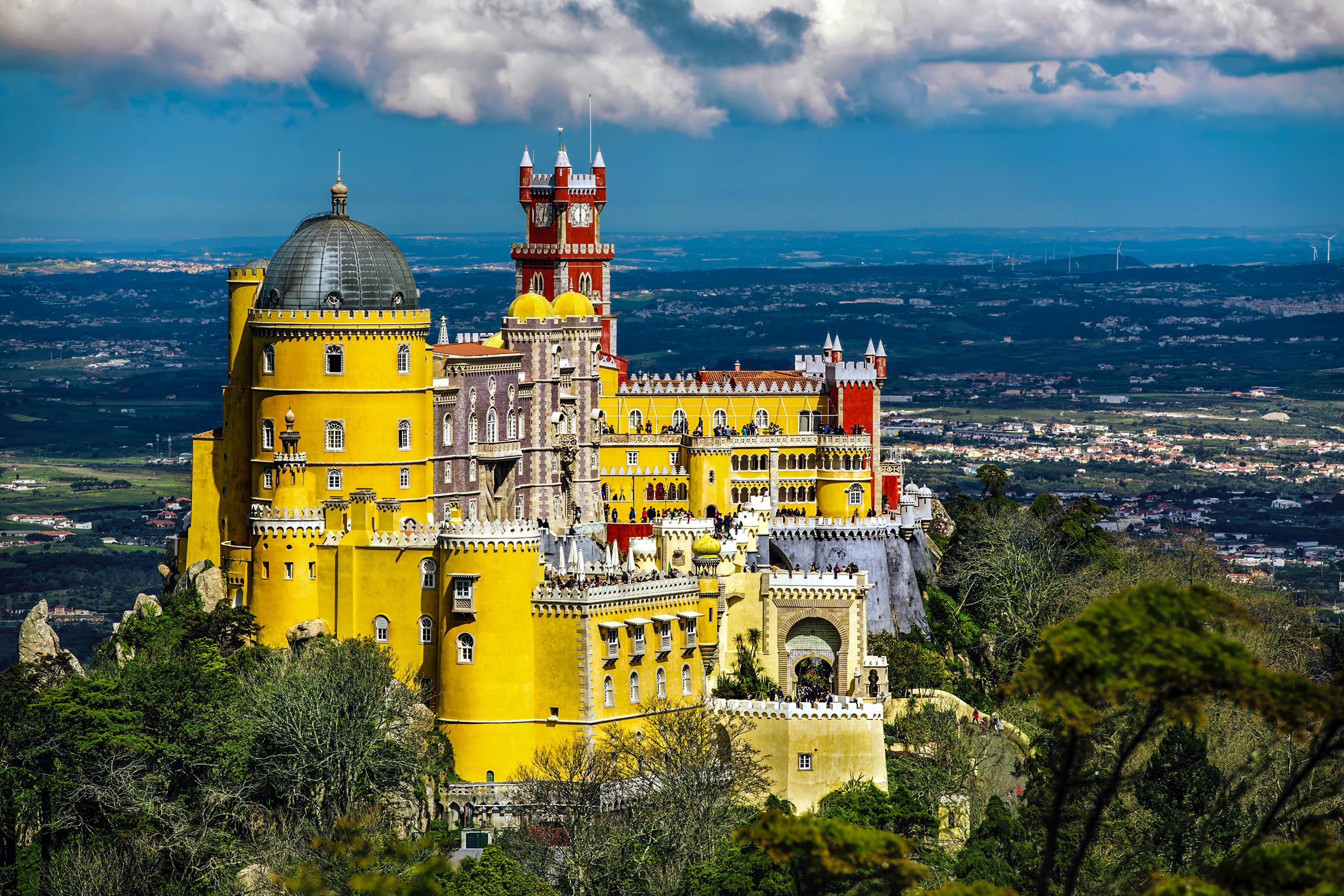
Palacio Nacional da Pena en Sintra ¡Un lugar maravilloso!
O Palácio Nacional da Pena, popularmente referido apenas por Palácio da Pena ou Castelo da Pena, localiza-se na vila de Sintra, freguesia de Sintra (Santa Maria e São Miguel, São Martinho e São Pedro de Penaferrim), município de Sintra, no distrito de Lisboa, em Portugal. [2]Representa uma das principais expressões do Romantismo arquitectónico do século XIX no mundo, constituindo-se.

Pena Palace Sintra Portugal Sintra portugal, Castle, Travel spot
Pena Palace is the most visited attraction in Sintra Goods From Japan delivered to your home or business Palácio da Pena in Sintra, near Lisbon Information. Estrada da Pena 2710-609 Sintra Tel: 21 923 73 00 www: parquesdesintra.pt. The palace opens from 9.30 am to 6.30 pm; the park is open from 9 am to 7 pm. There are reductions with the.
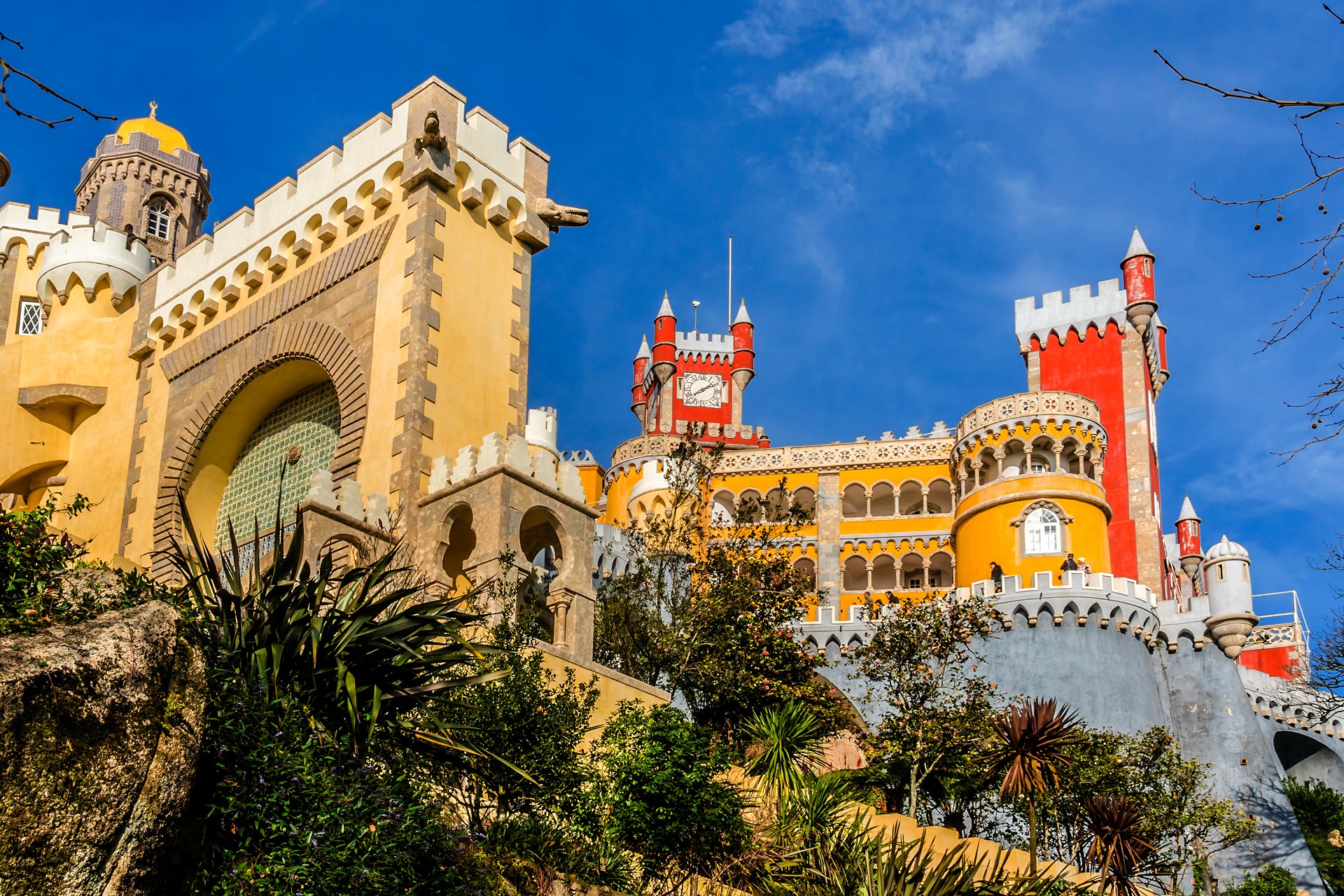
Malerischer Palacio Nacional da Pena nahe Lissabon Urlaubsguru.at
Parques de Sintra wins "Best Cultural Destination" in the world. Prizes. Parques de Sintra elected the World's Leading Conservation Company. Projects. The Park of Pena joins an international project to save a tree from the age of the dinosaurs from extinction. Book a visit to the parks and monuments of Sintra and marvel at one of the most.
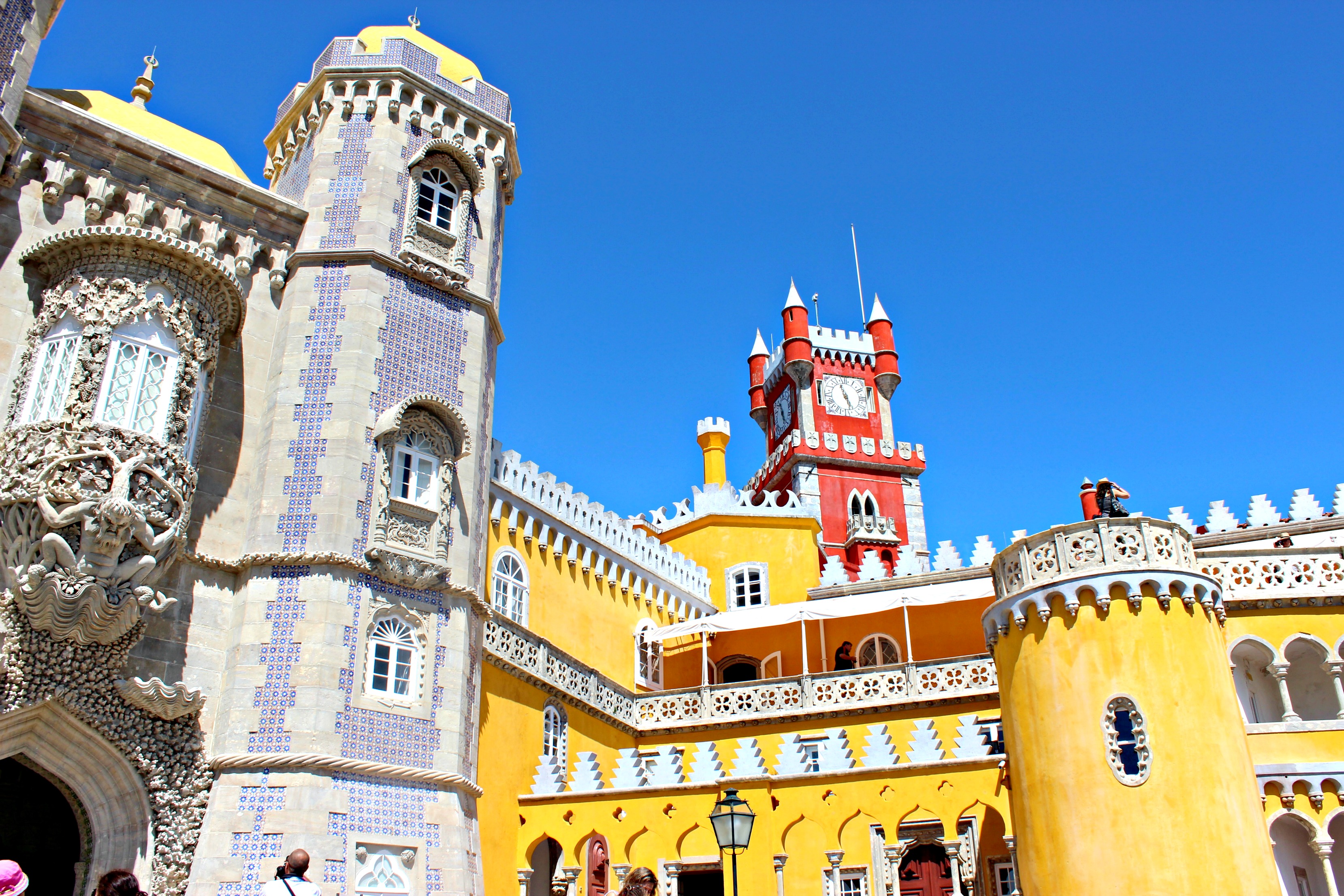
Exploring Pena Palace in Sintra Portugal hungryfortravels
Address: Estrada da Pena, 2710-609 Sintra, Portugal. Find On Map. Pena Palace is a picturesque jewel located in Sintra, a quaint town approximately 30 kilometres northwest of Lisbon, Portugal. Its lofty location offers sweeping views of the surrounding lush landscape and the Atlantic Ocean. Closest Landmark: Castelo dos Mouros, 850 m away.

Pena National Palace Sintra Lisbon Private ToursLisbon Private Tours
Starting at the main train station, Sintra Estação (Sintra Station) > São Pedro de Sintra > Sintra Vila (the National Palace) > Castelo dos Mouros (Moorish Castle) > Palácio da Pena (Pena Palace). The first bus is at 09:30, and the last bus is at 18:20. The full schedule can be found here on the official website.
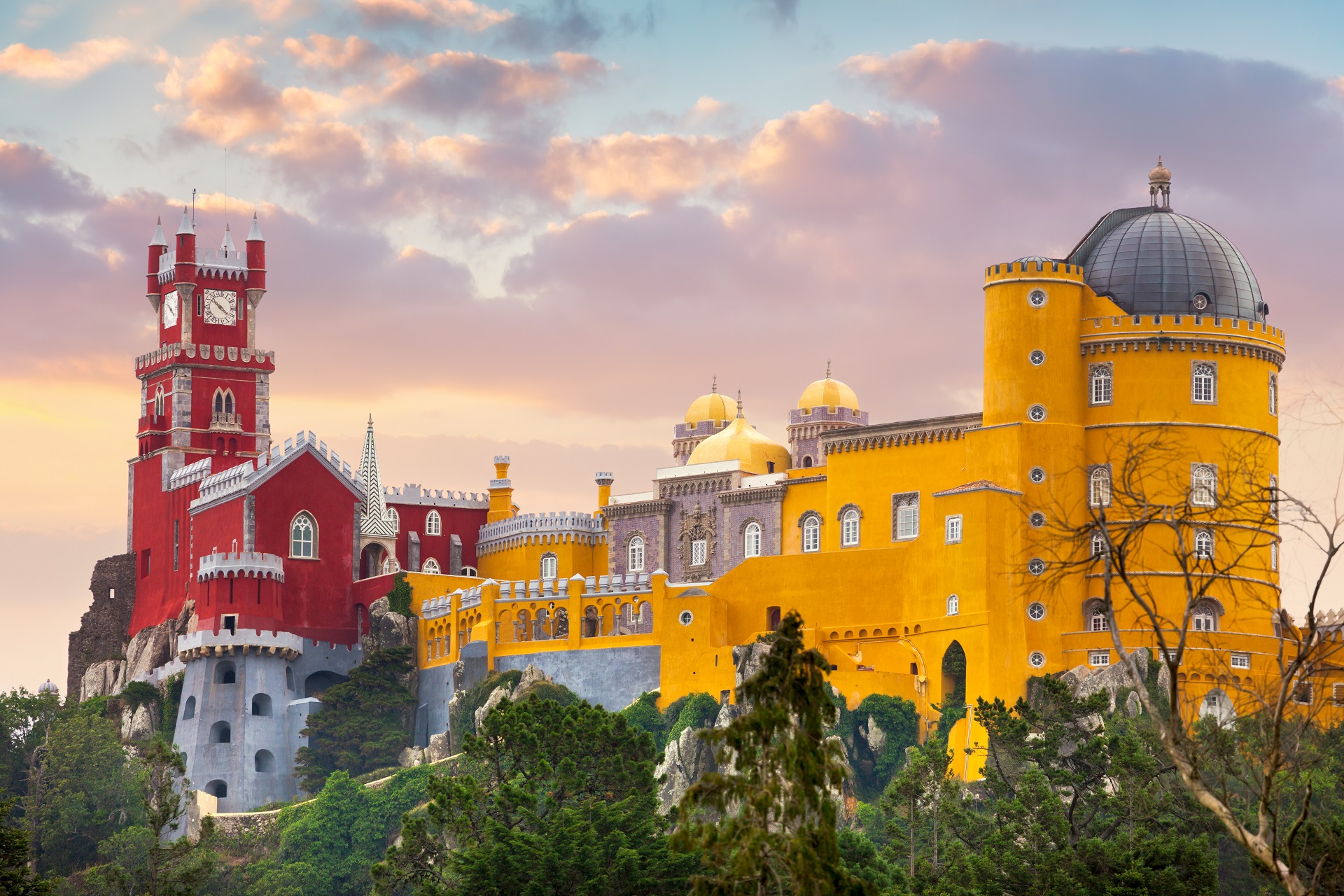
Palacio Nacional da Pena en Sintra ¡Un lugar maravilloso!
The Parque da Pena are the 200 hectares of lush forest and dramatic scenery that surrounds the beautiful Palácio da Pena. Superficially, Pena Park could be regarded as a dense and wild woodland, but it is actually a purposely-designed landscape that sits harmoniously within its surroundings and complements the Romantic architecture style of the palace.

Pena Palace The Triton Gateway Portugal Resident
The National Palace of Pena stands out as the renowned jewel in the crown of the Sintra Hills. The surrounding park, in close harmony with the magical character of the palace, triggers emotions of mystery and discovery. In its nooks and corners, our gaze gets lost amongst its charms. The coloured tones of the palace, the pinnacle of Romanticism.

Vista aérea Palácio da Pena Hugo Grilo Photography
The sumptuous interior of the Palacio da Pena, with its many impressive staterooms styled with fine examples of grand 19th-century furniture. Incorporated into the palace is the monastery around which the palace was built, along with the impressive Sala de Visitas, Salão Nobre, and the King's personal chambers.

FilePena Palace backedit.jpg Wikimedia Commons
Pena Palace
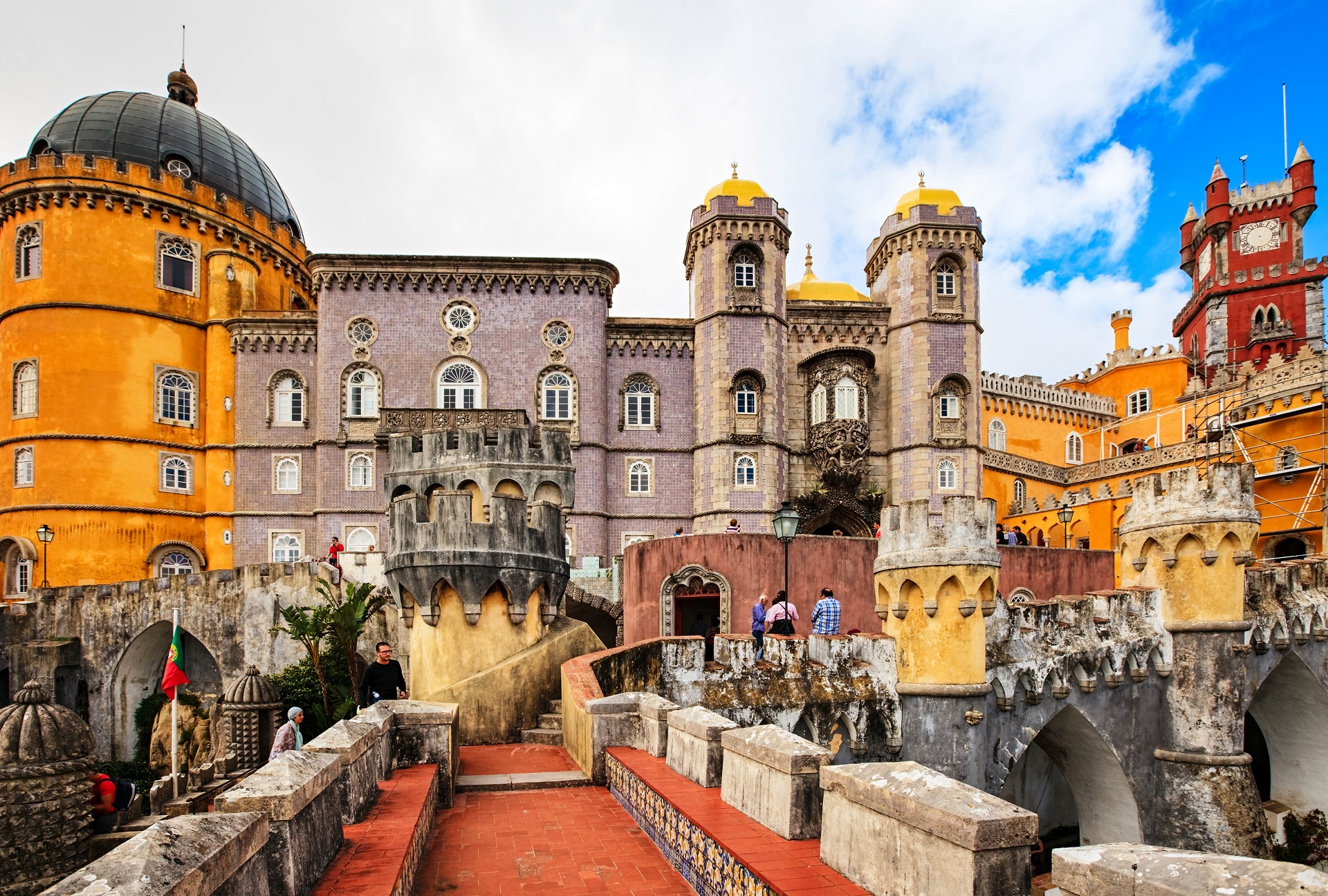
Malerischer Palacio Nacional da Pena nahe Lissabon Holidayguru.ch
A quick history of the Pena Palace in Sintra. The history of Sintra's Pena Palace begun in the middle ages as a chapel dedicated to Our Lady of Pena. In the 16th century King Manuel I ordered the construction of a monastery on the site. It became a site for peaceful meditation for hundreds of years until the Great Lisbon Earthquake in 1755.

Entrada al Palacio da Pena en Sintra Vagamundos Viajeros Blog de viajes
Palácio Nacional da Pena. Rising from a thickly wooded peak and often enshrouded in swirling mist, Palácio Nacional da Pena is a wacky confection of onion domes, Moorish keyhole gates, writhing stone snakes and crenellated towers in pinks and lemons. It is considered the greatest expression of 19th-century romanticism in Portugal.